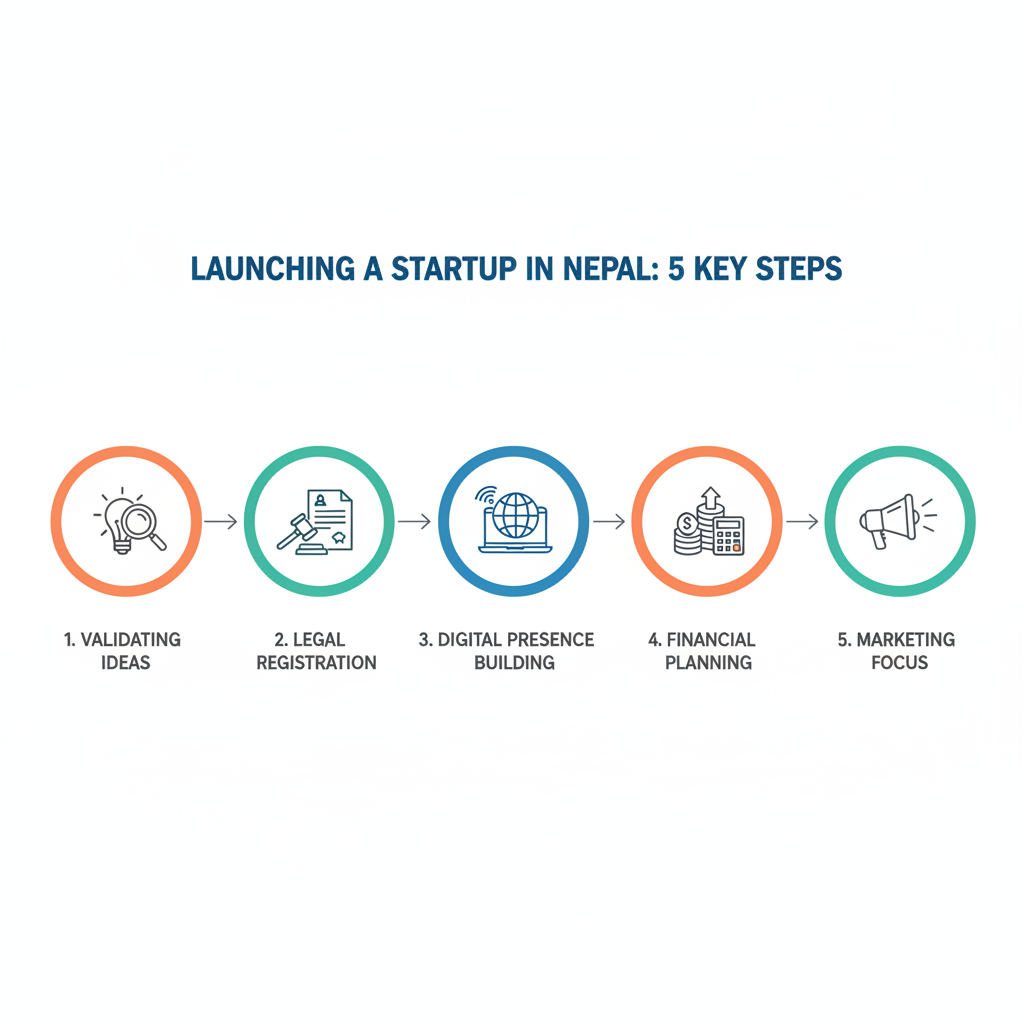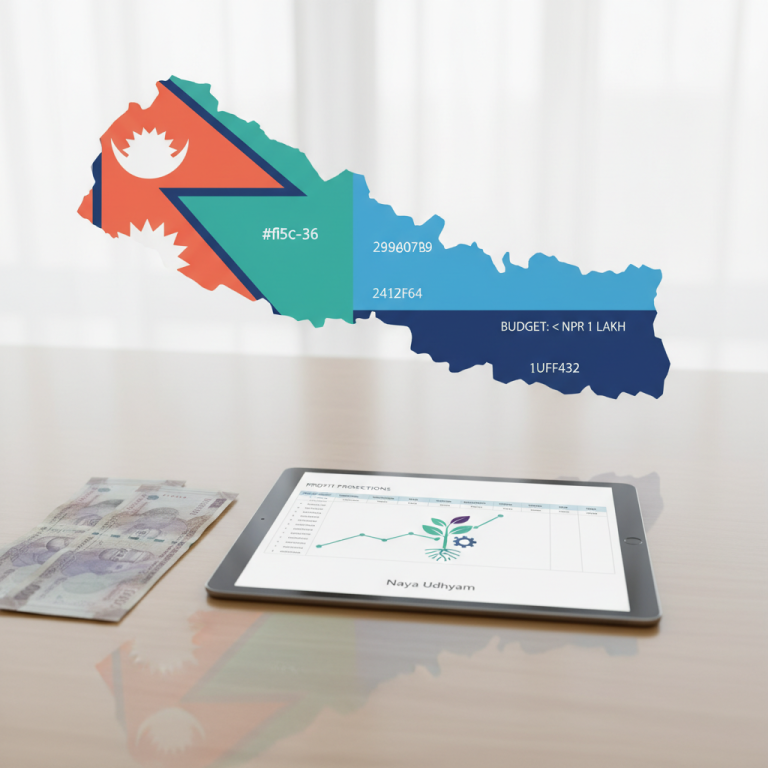Startup Business in Nepal: A Complete Guide for 2026
Do you have a brilliant idea keeping you awake at night? Launching a startup business in Nepal is more than just registering a company; it is about solving real problems for Nepali consumers in a market that is rapidly evolving. While the journey is challenging, the opportunity to build something meaningful has never been greater.
Whether you are in Kathmandu, Pokhara, or a growing digital nomad hub, the rules of business are changing. This guide helps you navigate the noise and focus on what actually works.
Why Now is the Best Time for Startups

Nepal is currently witnessing a digital revolution. Internet penetration is at an all-time high, and customer behavior is shifting towards online services. A startup business in Nepal today has access to tools and global markets that were impossible to reach just a decade ago.
Investors are also becoming more open to innovative ideas beyond traditional trading. From agricultural tech to service automation, the market is hungry for efficiency and professional service delivery.
5 Key Steps to Launch Your Venture

Success does not happen by accident. It requires a structured approach.
1. Validate Your Idea for the Nepali Market
Many founders fail because they copy global ideas without adapting them locally. Ask yourself: Does this solve a pain point for people in Nepal? Conduct surveys and small tests before investing heavy capital.
2. Navigate Legal Registration
To operate legally, you must register at the Office of the Company Registrar (OCR). Depending on your volume, you will also need to register for PAN or VAT. Do not skip this step; compliance builds trust with future investors.
3. Build a Strong Digital Presence
Your website is your digital headquarters. In 2026, a business without a professional website is invisible. You need a platform that converts visitors into customers.
Prime IT Sewa understands startup struggles and is a one-stop solution for digital setup, helping with branding, automation, and scaling systems for smart entrepreneurs.
4. Financial Planning and Cash Flow
Capital management is the lifeline of any startup business in Nepal. Secure enough runway for at least six months. Banks and private equity firms are increasingly supporting well-documented business plans.
5. Focus on Sales and Marketing
The best product does not win; the best-known product wins. Use social media, content marketing, and local SEO to ensure your target audience finds you when they search for your services.
Challenges You Must Overcome

The road is not smooth. You will face bureaucratic delays, talent retention issues, and infrastructure gaps. However, resilience is the hallmark of a successful entrepreneur. Focus on building systems that work even when you are not watching.
Frequently Asked Questions (FAQ)
How much capital is needed for a startup in Nepal?
This varies by industry. Service-based startups can launch with as little as NPR 50,000 to 1 Lakh, while manufacturing or inventory-heavy businesses require significantly more.
Is it mandatory to register for VAT immediately?
No, VAT registration is generally required only when your annual transaction exceeds a certain threshold (usually NPR 50 Lakhs for goods and NPR 20 Lakhs for services), but rules can change.
What is the most profitable startup sector right now?
IT services, e-commerce logistics, agro-processing, and tourism tech are currently showing high growth potential and profitability.
Final Thoughts
Starting a venture requires courage, but you do not have to do it alone. By focusing on value and leveraging the right technology, your startup business in Nepal can grow from a small idea into a household name.












One Response